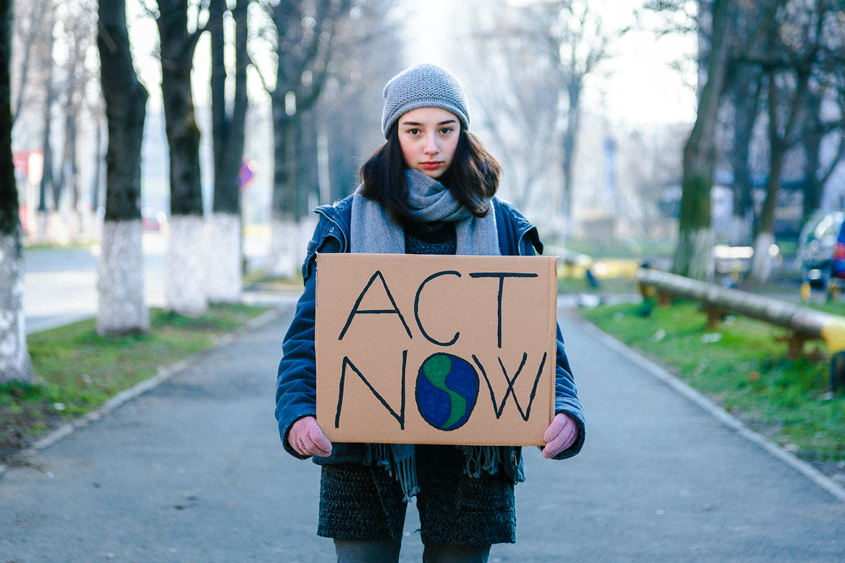IPCC Climate Report Issues a Final Call to Act – Here’s How
March 27, 2023
The Intergovernmental Panel on Climate Change (IPCC) released its latest report on Monday 22 March – urging all stakeholders to act now, in a final call to keep warming to 1.5 °C. The report is a synthesis and the final part of the sixth assessment report (AR6) providing scientific insight into climate change and its impacts. The message of the report is grim – the final opportunity for humanity to act is now.
“This report is a clarion call to massively fast-track climate efforts by every country and every sector and on every timeframe. Our world needs climate action on all fronts: everything, everywhere, all at once.” UN Secretary General António Guterres said at the launch of the report on 20 March 2023.

The report shows the evidence - we have all the science and tools we need. Now it’s about implementing them on a massive scale and at all levels, around the world. We have already reached 1.1 °C warming above pre-industrial levels, and this warming has happened at an unprecedented speed. Populations around the world are experiencing the effects, manifested in droughts, floods and heatwaves. The increasingly frequent extreme weather events result in interrelated global challenges affecting human health and creating food and water insecurity.
The report features a section on the deployment of climate-friendly technology and sharing of know-how. WIPO’s newest flagship publication, the Green Technology Book, launched at the COP27 climate conference in Egypt, also addresses the faster deployment of green technologies. The Green Technology Book was created in cooperation with partners Climate Technology Center and Network (CTCN) and the Egyptian Academy of Scientific Research and Technology (ASTR). The first edition of the Green Technology Book showcased 200 climate change adaptation technologies responding to some of the most critical challenges of climate change. The Book is divided into three chapters, each focusing on areas that are especially hard hit by climate change impacts: agriculture and forestry, water and coastal regions, and cities.

As the IPCC report shows, effective ways of responding to climate impact range from smart resource management to more novel solutions such as new types of crops. The technologies in the Green Technology Book showcase concrete ways of providing climate-resilient crops, soil moisture conservation and on-farm water management. In cities, the IPCC notes technologies that reduce flood risk and manage urban heat, including urban greening and restoration of wetlands. Often, a combination of technologies are needed. Countless lives have been saved by using tools like early warning systems together with physical infrastructure like dikes and levees to prevent flooding.
The ability to adapt to climate change is linked to broader vulnerabilities and thus to national and international development work and cooperation. As the IPCC report shows, vulnerable communities who have contributed the least to climate change are disproportionally affected by it. In contexts where people are highly vulnerable to climate change, millions face acute loss of livelihoods and lives. Mapping vulnerabilities and risks at a local level is a key to saving lives, for example by providing timely warning messages to remote communities.

While adaptation is costly, there is growing awareness and understanding that such investments pay off in the long term. Putting people front and center of adaptation helps ensure that the right solutions are used in the right places, to avoid maladaptation. By acting early, enormous costs related to damaged assets and infrastructure, and not least lives, can be avoided. Ecosystem-based adaptation and nature-based solutions are climbing up the agenda of cost-effective and impactful solutions. The value of the diverse forms of knowledge is important, and the Green Technology Book showcases a range of nature-based solutions and solutions based on traditional knowledge, including indigenous peoples’ forest fire management techniques and community-based techniques for mapping natural resources.
The 2023 edition of the Green Technology Book, already in the making, will focus on climate change mitigation technologies. The IPCC report confirms that the adoption of low-emission technologies lags behind in most developing countries. While it is the high-income countries that are and have historically been responsible for most of the emissions, the uptake of mitigation technologies in emerging economies is crucial to avoid a carbon lock-in effect. With many technologies offering important co-benefits such as efficiency gains and job creation, equal access means equal opportunity. The Green Technology Book aims to uncover exactly what these technologies look like.
Be Part of the Solution: Participate in the Green Technology Book 2023
The next edition of the Green Technology Book is currently in the making and is planned for launch at UNFCCC COP28. WIPO GREEN is looking for technologies – if you have an innovation and want it to be considered for the Green Technology Book – please upload it to the WIPO GREEN Database. All technologies will be visible in the database and can be accessed globally by all database users and matched against climate related needs. We are also still collecting adaptation technologies to be added to the 2022 edition in the database. Uploading to the WIPO GREEN database is free.


